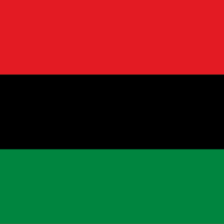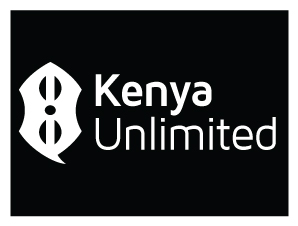Mungu ibariki Afrika! Happy Africa Day 2020.
We are celebrating Africa Day 2020 during the defining global health crisis of our time and the greatest challenge we have faced collectively for generations. Over the weekend the COVID-19 pandemic reached a milestone in Africa, with more than 100,000 confirmed cases. The virus has now spread to every country in the continent. Despite crossing this threshold, the pandemic, which has struck with such devastating force in much of the world, appears to be taking a different pathway in Africa according to the WHO. Case numbers have not grown at the same exponential rate as in other regions and so far Africa has not experienced the high mortality seen in some parts of the world. The current status in the region represents only 1.4% of confirmed COVID-19 cases and 0.6% of deaths reported worldwide. Writing in The Guardian Afua Hirsch asks, “Why are Africa’s coronavirus successes being overlooked?” For example, Bright Simmons explores Ghana’s “pooled sampling” testing strategy that is being adopted across the world. Frances Woodhams shares 5 Common sense reasons why the Africa continent is escaping the worst of the pandemic.
As the world gets to grips with the coronavirus disease outbreak another global epidemic threatens to spiral out of control. An Epidemic of misinformation poses a serious problem for public health. Speaking at Munich Security Conference in February WHO Director-General Tedros Adhanom Ghebreyesus said, “But we’re not just fighting an epidemic; we’re fighting an infodemic. Fake news spreads faster and more easily than this virus, and is just as dangerous.”
Most strategies to fight the infodemic are focused on two broad strategies.
- Firstly, building new information platforms such as WHO Information Network for Epidemics (EPI-WIN) to produce and disseminate facts and accurate information.
- Secondly, engaging with partners to get this accurate information directly into people’s hands through technology, media organisations and civil society organisations.
It is important to develop accurate information and to distribute that information to partners with a lot of reach. However, it has been clear that we currently do not have a technology tool that is sophisticated enough to effectively and automatically block misinformation especially in Africa’s fast growing megacities (82% of all COVID 19 cases in Africa come from megacities in 11 countries). Part of this is the sheer volume of information passing through platforms. Whatsapp users can send 100 billion messages in a day and people leave 2.5 billion comments on Facebook Pages every month. In April 2020 alone, Facebook found 50 million pieces of content related to COVID-19 on that were suspicious enough to be flagged. And as social media platforms become better at blocking misinformation, spammers are adapting too going back to older technologies which are harder to monitor remotely, such as SMS, to spread their lies.
Africa is having success battling the public health emergency, how do we replicate this success in battling the public misinformation emergency? As technology alone can not stop the spread of misinformation, what alternative strategies are available to us? Drawing on lessons from Public Health campaigns and on campaigns against Dangerous Speech from across the continent, here are three strategies for the short term, medium term and long term.
To tackle misinformation in the short term unleash the power of the crowd. Using a central platform people can work together to fact check a piece of information. Invite as many people as possible to take part in fact checking. Why is this effective? Research shows that laypeople, on average, are “quite good at distinguishing between lower and higher quality sources“. A platform where people can collaborate has two advantages; it increases the quality of peer review, by having more eyes looking at each source and it saves time that is spent in verifying the same piece of information over and over again.
In the medium term, we need to become creative on how we enter online communities based on the principles we can learn from Public Health professionals. Public Health professionals know how they enter a community will be critical to how the information they are sharing will be received. When they enter communities respectfully and explain properly to the members of that community why they collectively need to do something that may be inconvenient or uncomfortable, such as properly wearing a face mask, people understand and they take action. We can adapt this strategy for online communities.
Mgeni hawezi kuona mwezi
Methali za Kiswahili (A stranger can not see the moon).
A stranger has eyes but he cannot see.
Ghanaian saying
Strangers can not give advice without first observing the customs of the community they are advising. To counter online misinformation in pandemics we need to identify at risk online communities correctly and enter those communities respectfully. Identify those with influence in those communities and engage with them on their terms. Academic research papers will not work in influencing a YouTube Community but a well produced short video might. That good quality video may be too heavy for Whatsapp communities, where clear images may work better. A good experiment of this strategy is The Continent, a weekly African newspaper that is designed to read and shared on Whatsapp.
In the long term, we need to reduce the influence misinformation has on its intended audience. We know from research by Susan Benesch at the Dangerous Speech Project that even the most inflammatory message is unlikely to inspire violence if its audience is not already susceptible to such messages. Our long term strategy should be to reduce the susceptibility of our communities to misinformation.We can teach skills such as, when deciding how much weight to give to a new piece of information, we consider not only what is being said, but who is saying it. We help people develop skills to rate the credibility of the speaker. We spread skills that help people assess information for themselves to test its origins.
For unity.
For self-determination.
For freedom.
For progress.
For collective prosperity.
Africa Moja, Africa Huru!

